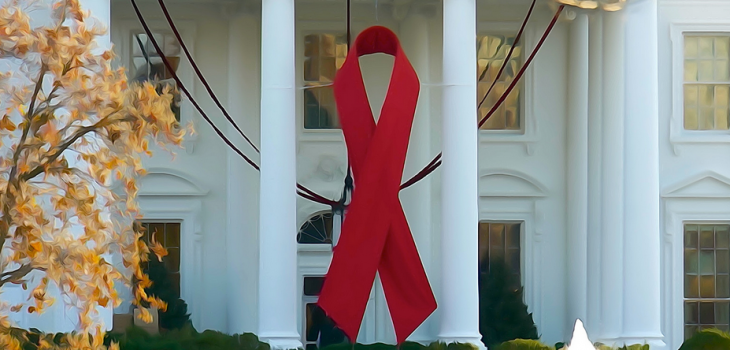By Richard Coker and Mishal Khan (London School of Hygiene & Tropical Medicine)
The recent election of Donald Trump has cast a dark cloud of uncertainty over the United States’ role in international development, and for HIV/AIDS, has thrown the future of global control efforts into question.
Mitchell Warren from the AIDS Vaccine Advocacy Coalition has warned that this single event “could imperil [the] progress” made in the past two decades towards a rights-based response to the global HIV epidemic. Drew Gibson, a writer and social worker, had a more emotional response: “Do not listen when someone tells you it will all be OK. It will not. For people living with HIV and those that advocate alongside them, a Trump White House coupled with a Republican-controlled Congress is nothing less than a waking nightmare.”
The precarious situation we find ourselves in with respect to future efforts to tackle HIV/AIDS following the US election is a clear example of the massive and rapid influence of politicians and politics on disease control and global health security. In contrast, the incremental gains in scientific knowledge, and evidence of the benefits of effective interventions, can seem miniscule, slow, and our efforts depressingly futile when caught up in such a political maelstrom.
The fact that a government under Donald Trump could impact HIV/AIDS control so profoundly all over the world also highlights the dependency of low and middle income countries on US funding. America is the biggest foreign aid donor in the world (by total contributions, though not per capita or as fraction of GNP), representing almost a quarter of development assistance from major governments in 2014. Washington’s decisions on the amount of funding for health, through which institutions funds flow, and the strings attached for recipients, therefore have far-reaching effects on HIV/AIDS and other national disease control strategies.
With regards to the amount of funding and where it will go, many believe that Trump has so far sent mixed messages. He has said, albeit vaguely, that he broadly supports the idea of development aid and that he will commit to doubling the number of people receiving HIV/AIDS treatment worldwide through the U.S. President’s Emergency Plan for AIDS Relief (PEPFAR). But he has also suggested that it is time to slash aid in favour of spending on priorities at home. There is a clear protectionist message here: foreign assistance will be provided where there is a clear benefit to the US. For example, Trump has stated that he would continue to deliver foreign aid to countries that he believes could turn into security risks, such as Pakistan.
On the strategic direction that funding will take, initial decisions on candidates for leadership positions to not bode well, at least for domestic policy, and likely reflect what is be the approach for international engagement. For example, Trump has recently announced that he would nominate one of the Congress’s main critics of Obamacare – Tom Price – to lead the Department of Health and Human Services. Price’s track record includes voting against abortion rights and anti-domestic violence laws. He would join vice president Mike Pence, who has previously suggested that federal money used to fund HIV/AIDS research should instead be diverted to programs that try and cure homosexuality by providing “assistance to those seeking to change their sexual behaviour.”
Bearing in mind that until 2010 federal immigration law prohibited people with HIV from visiting or immigrating to America, current unsettling political changes may put people living with HIV/AIDS – and broader global health security – at risk both domestic and internationally.
Oxford University Press are highlighting World AIDS Day with recently published relevant articles and a quote from our Director Peter Piot: http://blog.oup.com/2016/12/fighting-stigma-hiv-aids/
Related Health Policy and Planning articles: http://bit.ly/2gVsJXH
Image credit: Ted Eytan











